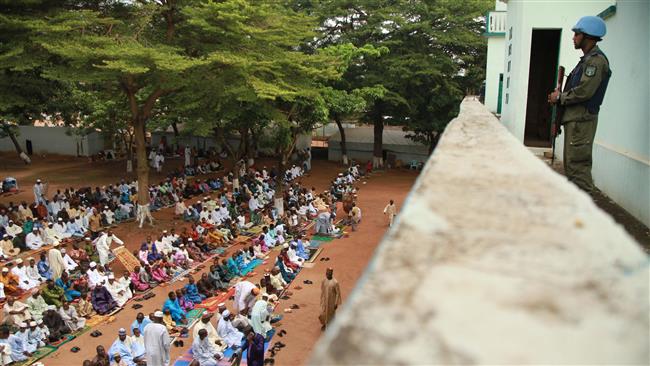
RNA - Militants from the Seleka group attacked the village of Ndomete, near the town of Kaga-Bandoro, about 350 km (220 miles) north of the capital, Bangui, on Friday. Reports of the attack, however, emerged on Saturday.
“There were 26 victims… the village chief was among the victims,” Albert Mokpeme, a spokesman for the presidency, said on Saturday.
“It was a massacre,” he emphasized.
Officials are concerned that the incident could revitalize the dormant acts of vendetta between the mainly Muslim Seleka militants and rival Christian anti-Balaka militias.
In early 2013, Seleka toppled the then-President Francois Bozize, who was replaced by Michel Am-Nondokro Djotodia, the first Muslim to hold the presidency in the CAR.
Christian militias reacted by engaging in large-scale attacks against the minority Muslims.
A fifth of the population was forced to flee to safer regions as the impoverished nation was plunged into violence along ethnic and religious fault lines.
Thousands of people were killed and hundreds of thousands displaced in the resource-rich country, as it suffered its biggest crisis in its half-century of independence during the period of violence in 2013 and 2014.
In 2014, some 11,000 peacekeepers were deployed by the United Nations (UN) to the country as part of the established United Nations Multidimensional Integrated Stabilization Mission in the Central African Republic (MINUSCA).
“MINUSCA regrets the loss of human life and the wounded that were recorded and also denounces attacks against the humanitarian community and United Nations personnel,” the UN said following the Friday bloodshed.
On July 23, 2014, Seleka and anti-Balaka representatives signed a ceasefire agreement in the Congolese capital, Brazzaville, but the country has not yet emerged from its bloody past.
111/847/C